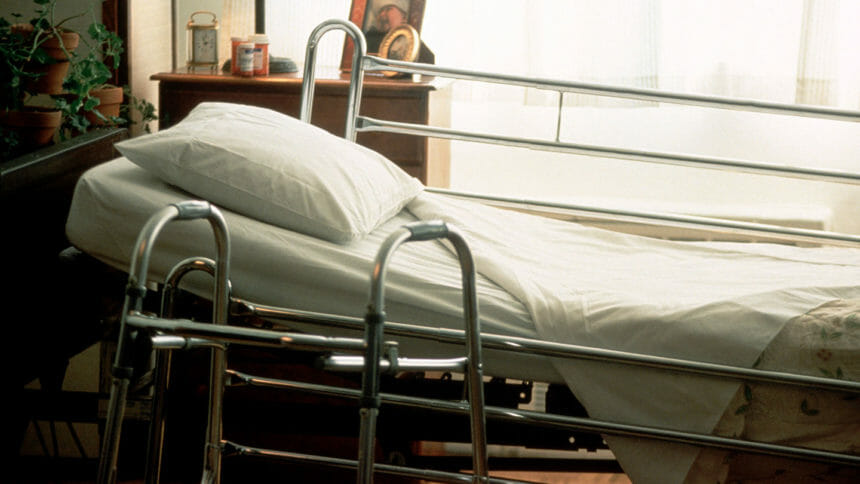
Senior care industry representatives hope that dire staffing shortages that led to 11,000 seniors being denied admittance to facilities in Minnesota in a single month will be improved through a legislative fix.
“We had the beds, but we didn’t have the workers,” Patti Cullen, president and chief executive officer of Care Providers of Minnesota, told McKnight’s Long-Term Care News Tuesday. “We’re not going to admit people if we can’t take care of them. They wound up sitting in hospitals or at home really needing care or services and not being able to get access to that.”
Cullen said she and other advocates are hoping the state will use some of a projected $17 billion surplus to increase rates, which need to rise by double-digits to sufficiently tackle the problem. Although nursing home providers saw a rate increase in January 2022, it was from costs incurred two years prior and did not reflect increases due to COVID, workforce increases, a decrease in occupancy and inflation.
“We got an increase, but it wasn’t the increase we needed,” she said, noting that the average increase per provider is 3% to 5%.
Providers in some states have won landmark new Medicaid support in the face of the labor crisis. In Pennsylvania, for instance, nursing homes last year secured a 17.5% increase after a years-long drought. In New York this spring, providers are asking for a 20% Medicaid increase to help address staffing and a widespread access issue.
Minnesota’s Caregivers Stabilization Act of 2023, introduced by Sen. John Hoffman (DFL-Champlin), would increase rates for nursing facilities, and other elderly and disability care facilities and services. It was assigned bill No. 7, indicating it is a high priority for Democrats, who control both legislative houses and the governor’s mansion.
Providers are specifically asking for a $25 per day per diem increase and formula changes so they don’t have to wait two years for costs to be reflected in the rates, Cullen said. They also want a “boost up” for the waiver program for assisted living, which is “severely underfunded.”
“If they give us what we’re asking for, that’s a really good start,” Cullen said.
Companion legislation has been introduced in the state House by Rep. Mohamud Noor (DFL-District 60B) but as of Tuesday evening, it has not been assigned to a committee. Cullen said she and others are scheduled to meet with Noor this week to discuss the bill and their requests.
“We understand this workforce crisis is across all settings, but access is becoming such a serious issue that we need to have people pay attention to this,” Cullen said.
In October, Minnesota Public Radio reported that the long-term care workforce was down approximately 20% during the previous two years and since 2019, 18 nursing homes had closed, including six in 2022.





